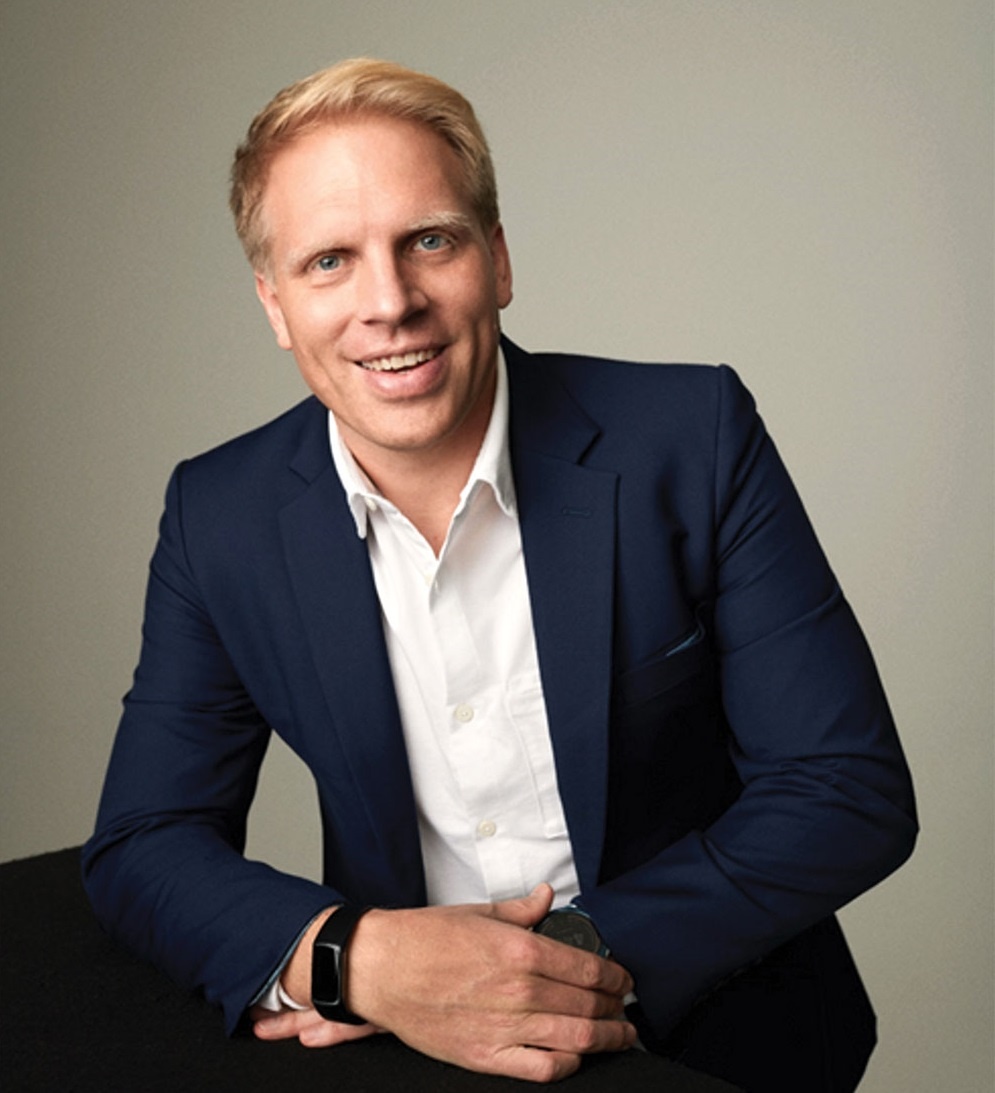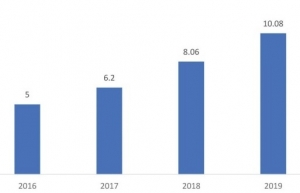INTERNATIONAL INVESTMENT
AND PORTAL
Could you give an update about Antler’s portfolio?
 Magnus Grimeland
Magnus Grimeland
It boasts about 680 companies in 25 locations across the world including Brazil, the United States, and Canada. In Europe, we are in most of the big capitals. In Africa, we’re in Nairobi. Asia is obviously a big focus for us with most of the major tech ecosystems in India, China, Vietnam, Indonesia, Singapore, Japan, South Korea, and Australia.
We’re the world’s second most active early-stage investor now, and back the top 1 per cent of founders. We got 65,000 applicants last year from founders who want to work with us. Antler backs the best of the next generation of great companies, supporting their access to co-founders, supporting business model validation, putting in the first bit of capital with advisors across the globe, helping internationalise, and then we continue to back them.
We also have a later stage fund, which enables us to invest directly into later stage companies. I’m incredibly excited to set up here in Vietnam.
Which sector do you invest the most in?
Antler is sector-agnostic and we just want to back founders in solving important problems. We wanted to be tech enabled to enable scale and growth. But basically, we invest across industries. In the region, we’ve done a lot with fintech, business-to-business, AI, climate-tech, and sustainability.
For example, out of the Nordics is Glint Solar, which identifies the best solar sites faster. And Ocean Oasis uses wave energy to desalinate water to solve water scarcity. There’s a great company out of Australia called Pathzero, which makes it easy for companies to disclose their carbon emissions and the actions being taken to address them.
In Asia, there’s a company we back called Reebelo, which is the marketplace for a wide variety of second-hand electronic products. Its growing incredibly fast across Asia and is expanding worldwide.
Fundamentally, we believe that the way civilisation will move forward, and the way the world will become a better place, is by great people spending their time innovating and building businesses around this. If you think about some of the big recent things that have been solved, for example COVID-19 vaccines, it was solved by a few founders getting together and creating them.
The majority of startups die, so why do you invest in them?
While 95 per cent of startups don’t make it, when you look at startups backed by Antler, we have an 87 per cent success rate. We think fundamentally that there’s no reason why startups should fail.
What you need is to persuade that you’re a great founder and build a great co-founding team, that you’re working on solving real problems. And then you put the energy and effort required to get that off the ground. With the right capital backers you will succeed 80-90 per cent of the time. That’s why we’re here. It’s about deliberating around what you’re going to build with your billions with and being serious about succeeding.
About 30 per cent of founders that Antler has backed are women. What do you think about female entrepreneurs and why should we support them more?
If you look at universities in the US now and other places, actually, women are doing better. They’re more in the freshman class in the US and have outperforming in the workplace so why does only 3 per cent of global venture capital go to women? It makes no sense, and it should be at least half.
We think part of the reason for that is that to build a business in the past, you needed to have strong networks. You entered the right schools, then it was easier to build a business. And since there were mostly male business leaders in the past, those networks were more difficult to access for women.
But after we built Antler, we just looked for great people. We can just pick the best individuals and half of them are women. Around 30 per cent is way higher than the average but we are working on finding more incredible women to back.
We don’t care where people come from a background with gender, religion, or whatever. And hopefully, it will really help change the world because once these female founders become successful, they will be role models for the next generation of female entrepreneurs.
What made you interested in Vietnam at first?
I got to know about Vietnam very early because when I grew up in Norway, there were numerous Vietnamese people living where I was, and they were superb entrepreneurs.
I first got the chance to come here when we were building former business Zalora. There were three things that really stood out to me. One is that people are very ambitious about taking the next step and achieving something, so there’s an inner entrepreneurial drive. The second is that people work incredibly hard. Vietnamese people are dedicated and hard-working, and to build a business, that’s what required. Building a business requires a strong work ethic.
And the third is strong technical resources. We built our entire tech team for Zalora here in Vietnam. I got a tremendous amount of respect for the availability of talent here and the ability to really build great technology. So that’s how it happened.
Vietnam has always had incredibly strong people and the country that has been wanting to go their own direction, which is great. It also strategically lies in an excellent location.
Nearly everyone wants to come here, and Vietnam manages to create this great balance where we have strong relationships with both the East and the West. If combining that with the talents available, we’ll have a situation where critical talents can build for the world. And you can access capital not only locally but also globally.
Have you found any room for improvement to make it easier for investors?
I think there are a couple of things that are interesting to work on. One is making Vietnam even more attractive for foreign entrepreneurs to come and do their business, so you can combine local talents with international talents. If you think about the US or Singapore, there are very thriving tech ecosystems. About 70 per cent of the unicorns being built there are built by first- and second-generation immigrants.
If you can combine with co-founders from first and second generation immigrants, or some really great people who want to come from the rest of the world and build out here, that’s a great opportunity. So working on making Vietnam desirable on the global stage, and then ensuring that immigration wise is enabled, is important.
I know plenty of people would like to do that from South Korea, Japan, China, the US, Singapore, and others. So making that as easy as possible and that there is readily available access to global capital is key. These companies have networks to support their founders to grow globally. And you should get a pledge to deploy capital to great Vietnamese founders.
Additionally, investing in education and language is important. The more people in the country that speak two languages, the better. It doesn’t need to be English but two languages, perhaps like Vietnamese and Chinese, or Korean, for example. Languages will help to build international relationships and then you start building global businesses instead of local businesses.
What sectors do you think will see most activity in Vietnam this year?
We try not to talk too much about sectors because the founders typically themselves know their areas of expertise better than we do. Let’s say we have founders who spend time in the logistics industry and they know better how to disrupt the logistics space than I do. The founders see all these opportunities that we don’t and we just want to back these people in whatever they want to build.
Vietnam has tremendous opportunity to build companies in almost any industries, things that are very software heavy. So various businesses from gaming to e-commerce, or where they’re creating tools that make the world more efficient like Industry 4.0 tools. The whole software space is very interesting.
The impact space is also very interesting. We saw a company that is building a new technology for biodegradable plastic and since you have so good manufacturing capabilities, countless areas can be solved by Vietnamese entrepreneurs.
It starts with building big small companies and then building the part of bigger companies out of Vietnam. We have the vision to bring companies all the way from the first rounds to an initial public offering, and that’s the long game we want to play.
The hardest part is to set up the infrastructure for startups, which the Vietnam team led by Erik Jonsson has done a tremendous job to find founders and to back them. The next part is what’s to come. Naturally, the interesting thing about innovation is that we don’t know what it would be. We know what great founders look like but they will create the future, so we never really tried to predict the future. We’d rather work on helping to create it.
 Promoting exports via e-commerce platforms
Promoting exports via e-commerce platforms
Policymakers, businesses, and experts gathered at a workshop in October to discuss increasing opportunities to boost exports via cross-border e-commerce platforms.
 Vietnam’s draft e-transaction law and the highlights within
Vietnam’s draft e-transaction law and the highlights within
The current Vietnamese Law on E-transactions 2005 is based upon the model Law on E-Commerce, which is outdated, and its terms are difficult to apply in practice. Meanwhile, e-commerce transactions are increasingly developing due to changing user demands and habits since the COVID-19 pandemic.



















